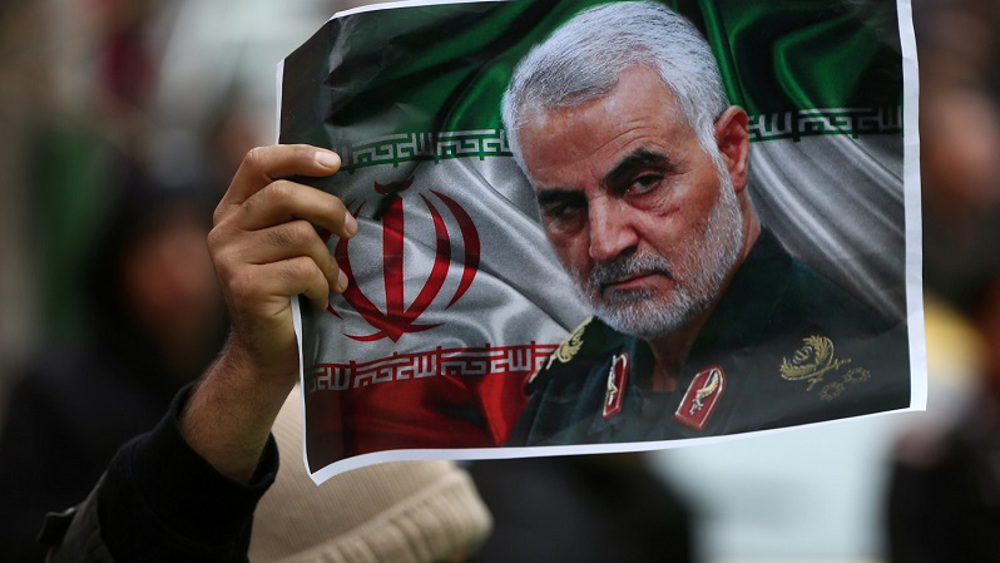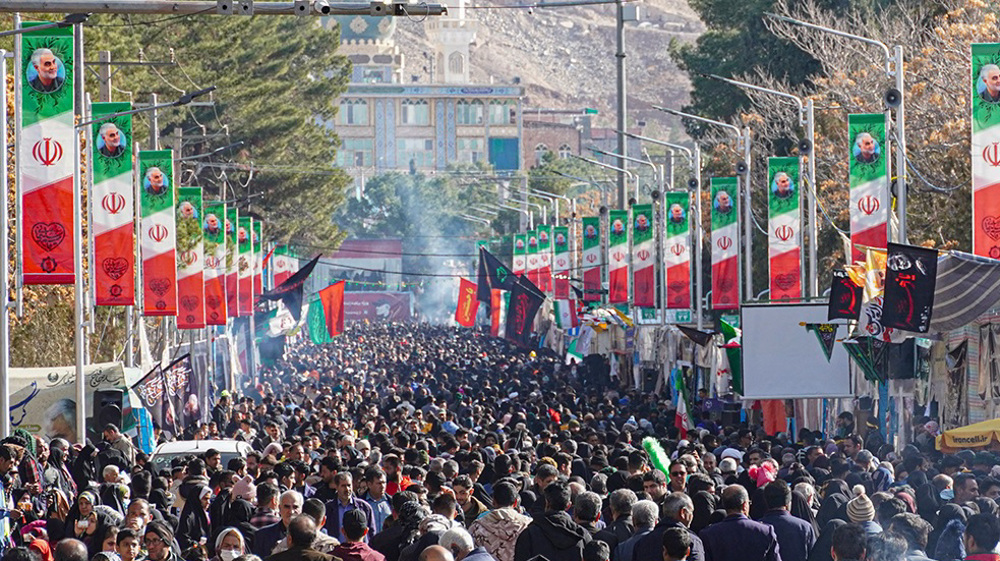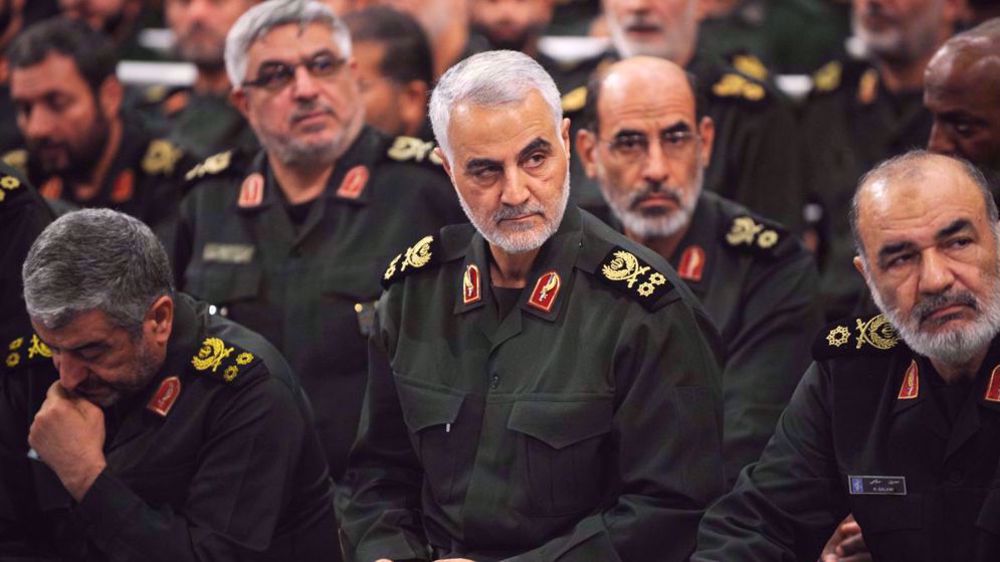US killing of Gen. Soleimani ‘monstrous crime’ designed to escalate tensions: Analyst
The assassination of top Iranian anti-terror commander Lieutenant General Qassem Soleimani and his companions by the United States was a “monstrous crime” designed to further escalate tensions in the region for the benefit of America’s capitalist establishment, says a political commentator.
Bill Dores, a writer for Struggle/La Lucha and longtime antiwar activist, made the comments in a phone interview with Press TV as Iran and Iraq commemorate the first martyrdom anniversary of General Soleimani, the commander of the Quds Force of the Islamic Revolution Guards Corps (IRGC), and Abu Mahdi al-Muhandis, the former commander of Iraq’s Popular Mobilization Units (PMU), who were assassinated in an airstrike outside Baghdad International Airport on a direct order from US President Donald Trump.
US terrorists assassinated the two distinguished commanders along with their companions by targeting their vehicles outside the Baghdad airport on January 3.
The US Defense Department, the Pentagon, took responsibility for the act of terror.
“Republicans and Democrats, whatever their tactical differences and factional differences, are both beholden to US corporate interests who want to keep the United States, US banks, and corporations at the center of the world economy through terror, force, and violence which is the only way that obsolete state of affairs can be maintained,” Dores told Press TV.
“The murder of General Soleimani and commander Abu Mahdi was a monstrous crime that were meant to plunge the entire region into an even wider war for the benefit of US banks and corporations,” he added.
Dores censured the targeted killing of the two commanders and underlined that, “This is not in the interest of the people of the United States, the majority of people in the United States or of the world.”
Both commanders were viewed by the world's freedom-seeking people heroes who risked their lives taking on Daesh, the world’s most notorious terrorist group, on the battlefield. They played a key part in defeating the terror outfit.
Several million people attended the funeral processions held for the commanders in the Iraqi cities of Kadhimiya, Baghdad, Karbala and Najaf as well as the Iranian cities of Ahvaz, Mashhad, Tehran, Qom and Kerman.
The US assassination of General Soleimani and Muhandis drew a wave of condemnation from officials and movements across the world, and triggered furious public protests in denunciation of the heinous act.
In response, the IRGC fired volleys of ballistic missiles at two US bases in Iraq on January 8. According to the US Defense Department, more than 100 American forces suffered “traumatic brain injuries” during the counterstrikes. The Corps, however, says Washington uses the term to mask the number of the Americans who perished during the retaliation.
Iran has also issued an arrest warrant and asked Interpol for help in detaining Trump, who ordered the assassination, and several other US military and political leaders behind the strike.
Anti-American sentiments have been running high in Iraq after the two senior commanders were assassinated in Baghdad, with Iraqi lawmakers unanimously passing a bill on January 5 that mandated the withdrawal of all foreign troops from Iraq.
Iraqi resistance groups have pledged to take up arms against US forces if Washington fails to comply with the parliamentary order.
VIDEO | 85% of Yemeni displaced people face daily hunger crisis
US House passes bill targeting charities and pro-Palestine groups
VIDEO | Supporting Gaza genocide
Hezbollah attacks Israeli forces after Lebanese homes blown up
World leaders, states hail ICC arrest warrants for Netanyahu, Gallant
MP: US accountable for possible Israeli 'foolishness' to attack Iraq
VIDEO | Israeli policies strangle Palestinian agriculture, economy
Iran's president offers condolences to Pakistan over terrorist attack












 This makes it easy to access the Press TV website
This makes it easy to access the Press TV website